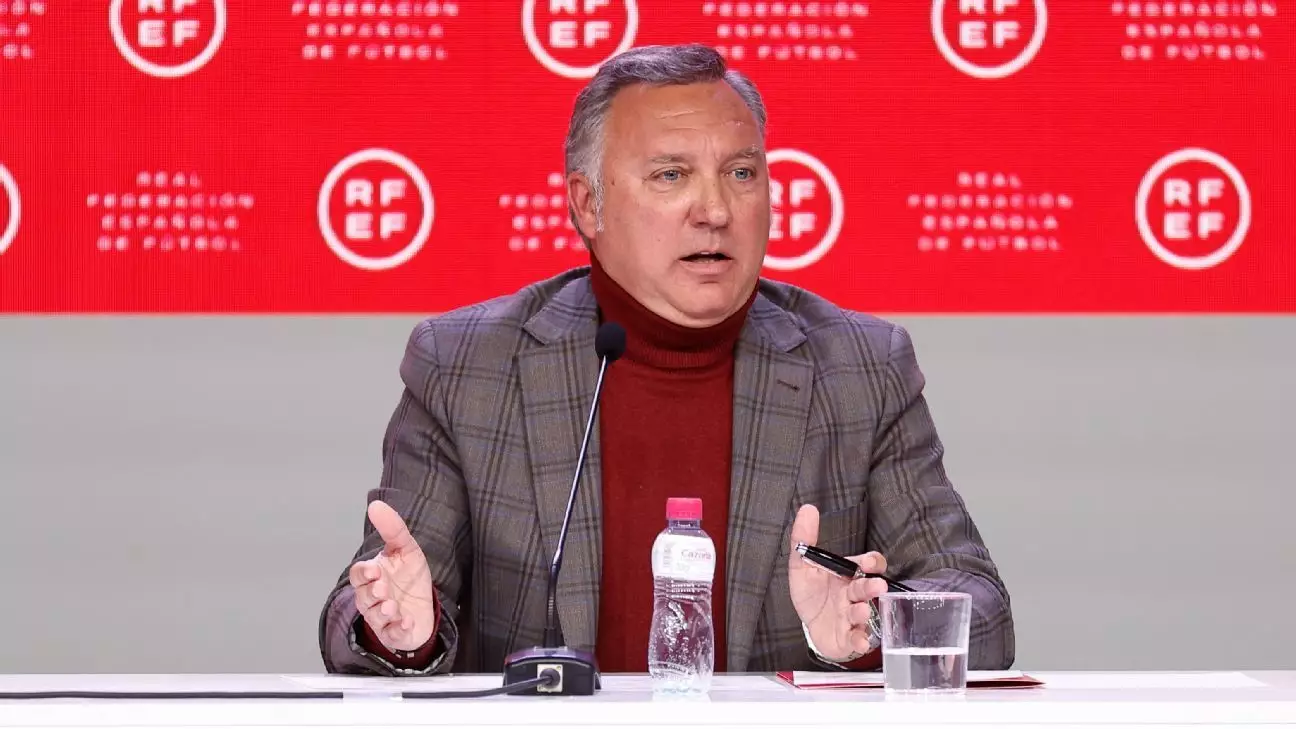In the realm of professional football, accusations and disagreements are commonplace, yet few teams find themselves embroiled in consistent disputes like Real Madrid. Recently, the head of the Spanish refereeing organization, Luis Medina Cantalejo, found himself responding to the club’s heavy criticisms, especially after their controversial 1-0 defeat to Espanyol. The atmosphere surrounding this incident was palpable as Real Madrid’s management sent an open letter addressing the Spanish football federation and sports ministry, denouncing the refereeing decisions that they believed compromised the integrity of the game.
In their letter, Madrid deconstructed the officiating of that particular match, marking specific grievances such as the failure to expel Espanyol player Carlos Romero for a foul on superstar Kylian Mbappé. This was particularly troubling for Madrid because Romero, against the odds, went on to score the decisive goal. The club also criticized an earlier disallowed goal from Vinícius Júnior, insisting on the necessity for transparency by demanding the release of audio tapes from the Video Assistant Referee (VAR) discussions. They argued that the mistakes made during this fixture transcended mere human error, condemning the broader refereeing infrastructure as “completely discredited.”
Amid rising tensions, Luis Medina Cantalejo adamantly defended his team of officials. His remarks revealed a blend of frustration and commitment: “We might be really clumsy, or really bad, but corrupt? No.” Medina pointedly stated that no referee steps onto the pitch with malevolent intentions, illuminating the dedication of officials who face immense pressure every weekend. His rejection of corruption claims is significant, given the ugly shadow cast by the broader Negreira case, which revolves around improper payments and has tarnished the reputation of Spanish football.
Medina’s perspective is crucial in understanding how these controversies shape the sport’s narrative in Spain. He underscored the integrity and honor of referees, emphasizing that their commitment exists even amid vehement dissent from clubs like Real Madrid. While these assertions reflect a defensive stance, they also highlight an essential narrative clash within Spanish football regarding accountability, pressure, and trust.
Real Madrid’s grievances echo deeper issues that have long plagued Spanish football: accusations of favouritism and inconsistencies within officiating. Since the exposure of the Negreira scandal, there has been an escalation of complaints regarding referee quality from Madrid, including calls for increased scrutiny into how referees are appointed and managed. In an effort to seek improvement, Madrid’s president, Florentino Pérez, even suggested the introduction of English referees to oversee games in Spain, implying a systematic inadequacy among local officials that needs urgent reform.
This turmoil showcases a broader systemic problem in how refereeing operates in Spain’s top-tier football. Piquet, a former Barcelona player and current commentator, has called attention to this pattern of deflection that Madrid often employs when facing adversity on the field. He claims these allegations are strategically designed to distract from Madrid’s shortcomings, a tactic that he argues is as old as the club itself.
The ongoing conflict highlights a complicated relationship between clubs and the refereeing body, where resentment and suspicion can overshadow the game’s integrity. The accusations and rebuttals, though customary in sports, escalate in intensity as they resonate with fans, potentially eroding trust in the league’s authority. The need for transparency and accountability within refereeing is paramount; whether in the form of improved officiating standards or the implementation of objective reviews, the sport will only thrive under a climate of authenticity.
As the dust settles from this latest storm, it remains essential for the governing bodies, clubs, and fans alike to reflect on the implications of these controversies. For long-term sustainability, an unbiased approach to managing disputes, coupled with structural reform, may be necessary to restore confidence in Spanish football — especially if it hopes to safeguard its reputation amid growing international scrutiny.

